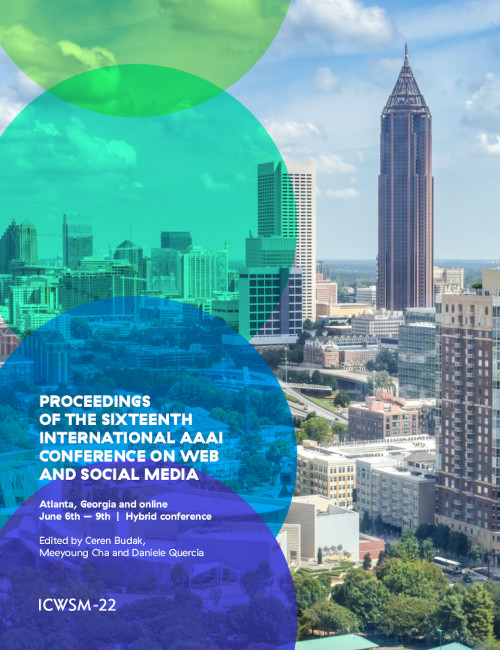Drink Bleach or Do What Now? COVID-HeRA: A Study of Risk-Informed Health Decision Making in the Presence of COVID-19 Misinformation
DOI:
https://doi.org/10.1609/icwsm.v16i1.19372Keywords:
Credibility of online contentAbstract
Given the widespread dissemination of inaccurate medical advice related to the 2019 coronavirus pandemic (COVID-19), such as fake remedies, treatments and prevention suggestions, misinformation detection has emerged as an open problem of high importance and interest for the research community. Several works study health misinformation detection, yet little attention has been given to the perceived severity of misinformation posts. In this work, we frame health misinformation as a risk assessment task. More specifically, we study the severity of each misinformation story and how readers perceive this severity, i.e., how harmful a message believed by the audience can be and what type of signals can be used to recognize potentially malicious fake news and detect refuted claims. To address our research questions, we introduce a new benchmark dataset, accompanied with detailed data analysis. We evaluate several traditional and state-of-the-art models, and show there is a significant gap in performance when applying traditional misinformation classification models to this task. We conclude with open challenges and future directions.Downloads
Published
2022-05-31
How to Cite
Dharawat, A., Lourentzou, I., Morales, A., & Zhai, C. (2022). Drink Bleach or Do What Now? COVID-HeRA: A Study of Risk-Informed Health Decision Making in the Presence of COVID-19 Misinformation. Proceedings of the International AAAI Conference on Web and Social Media, 16(1), 1218-1227. https://doi.org/10.1609/icwsm.v16i1.19372
Issue
Section
Dataset Papers

